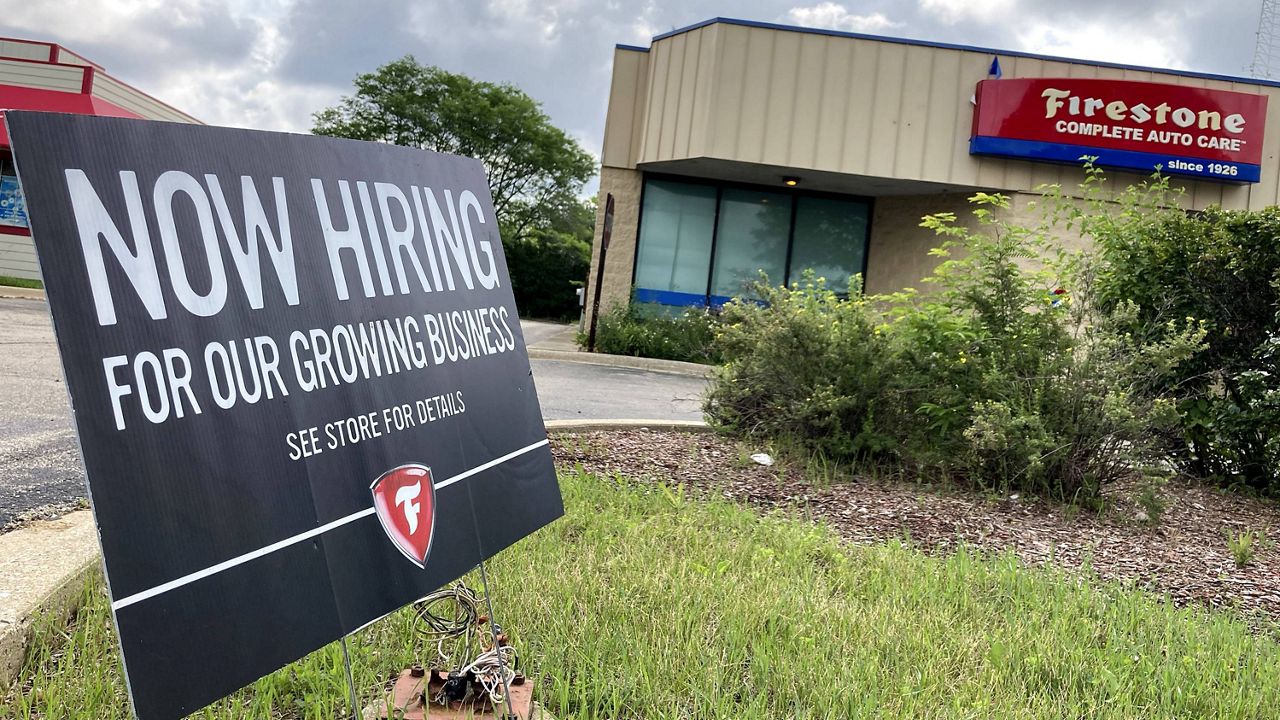WASHINGTON (AP) — The number of Americans applying for unemployment aid fell again last week to the lowest level since the pandemic struck last year, further evidence that the job market and the broader economy are rebounding rapidly from the coronavirus recession.
What You Need To Know
- The Labor Department reported Thursday that jobless claims dropped by 51,000 to 364,000, he lowest level since the pandemic struck last year
- It's further evidence that the job market and the broader economy are rebounding rapidly from the coronavirus recession
- The rollout of vaccines has sharply reduced new COVID-19 cases, giving consumers the confidence to shop, travel, eat out and attend public events as the economy recovers
- On Friday, according to the data provider FactSet, the government is expected to report that employers added 675,000 jobs in June
The Labor Department reported Thursday that jobless claims dropped by 51,000 to 364,000. Applications for unemployment benefits have fallen more or less steadily since the year began. The rollout of vaccines has sharply reduced new COVID-19 cases, giving consumers the confidence to shop, travel, eat out and attend public events as the economy recovers.
All that pent-up spending has generated such demand for workers, notably at restaurants and tourism businesses, that many employers have been struggling to fill jobs just as the number of posted openings has reached a record high. But many economists expect hiring to catch up with demand in the coming months, especially as federal unemployment aid programs end and more people pursue jobs.
On Friday, according to the data provider FactSet, the government is expected to report that employers added 675,000 jobs in June. That would be a substantial number but still not at a pace that would allow the economy to quickly regain its pre-pandemic level of employment. The job market remains nearly 7 million jobs short of that level.
Some businesses have complained that expanded federal aid to the unemployed — especially a $300-a-week supplemental benefit, intended to cushion the economic blow from the pandemic — has discouraged some people from looking for a job.
But other factors, too, are believed to have contributed to the shortage of people seeking work again: Difficulty arranging or affording child care, lingering fears of COVID-19, early retirements by older workers, a slowdown in immigration and a decision by some people to seek new careers rather than return to their old jobs.



